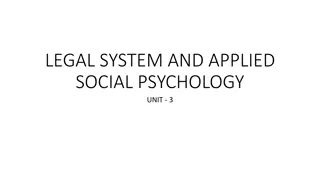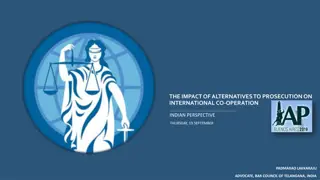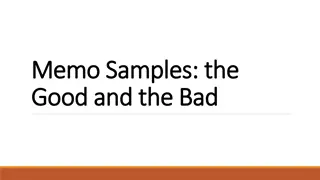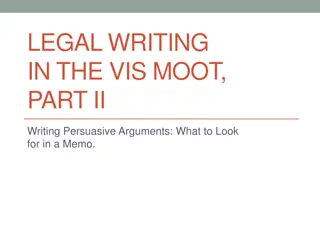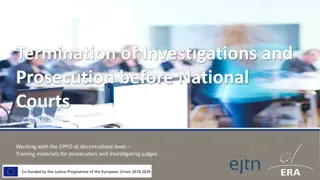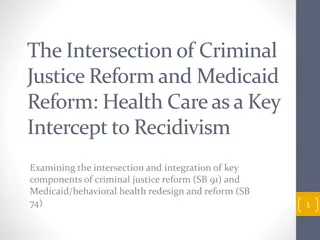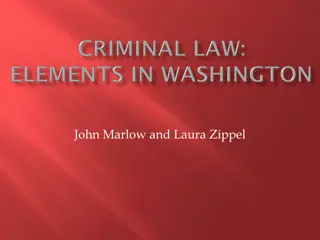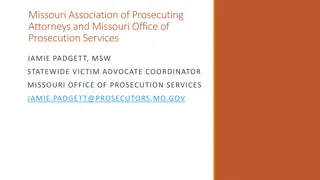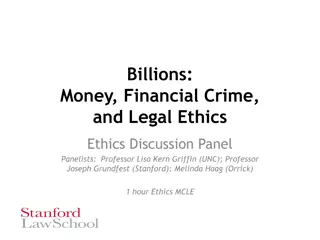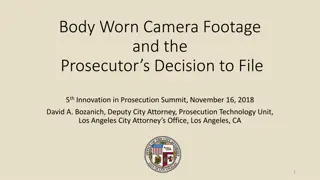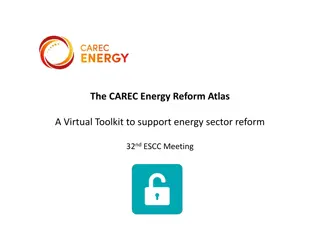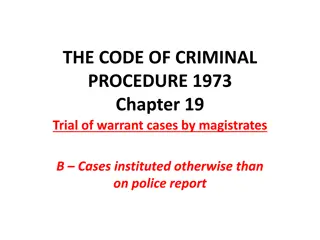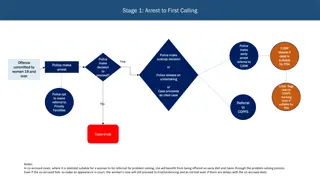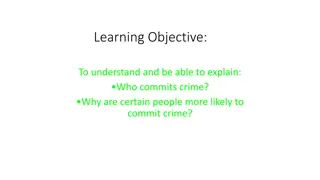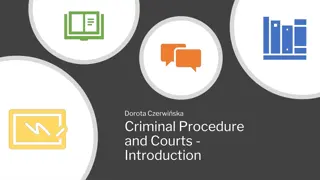Reform in Criminal Prosecution: The Garland Memo Impact
US Attorney General Merrick Garland's memos on general policies and drug cases highlight considerations for charging, mandatory minimums, and sentencing recommendations to address disproportionality and promote tailored approaches in criminal prosecution. The memos emphasize alternatives and case-specific assessments to ensure fair and just outcomes.
Download Presentation

Please find below an Image/Link to download the presentation.
The content on the website is provided AS IS for your information and personal use only. It may not be sold, licensed, or shared on other websites without obtaining consent from the author.If you encounter any issues during the download, it is possible that the publisher has removed the file from their server.
You are allowed to download the files provided on this website for personal or commercial use, subject to the condition that they are used lawfully. All files are the property of their respective owners.
The content on the website is provided AS IS for your information and personal use only. It may not be sold, licensed, or shared on other websites without obtaining consent from the author.
E N D
Presentation Transcript
THE FUTURE IS HERE: THE GARLAND MEMO, MANDATORY MINIMUMS, AND COLLABORATIVE COURTS
On December 16, 2022, US Attorney General Merrick Garland issued two memoranda: THE GARLAND MEMO(S) The General Memo providing general policies for all criminal cases The Drug Memo providing specific guidance for drug cases
THE GENERAL MEMO Charging Consider if the prosecution serves a substantial federal interest and if the person is subject to adequate alternatives to federal prosecution Specifically, consider whether there exists an adequate non-criminal alternative to prosecution, including civil or administrative remedies or pretrial diversion If charges are filed, consider whether the charges are proportional and are sufficient, but not greater than necessary to achieve the goals of criminal prosecution, rather than simply charging the most serious offense
THE GENERAL MEMO Mandatory Minimums The memo recognizes that mandatory minimums have caused unwarranted disproportionality in sentencing and disproportionately severe sentences Charges carrying man mins should be reserved for instances where the remaining charges do not reflect the seriousness of the conduct, the dangerousness of the defendant, or the harm to victims Man mins must be approved by supervisors. USAOs must report the number and percentage of charging documents and plea agreements including man mins
THE GENERAL MEMO Sentencing Recommendations Recommendations should be based on an individualized assessment of the nature and circumstances of the offense and the history and characteristics of the defendant While in many cases the appropriate sentence will be within the Sentencing Guidelines advisory range, prosecutors should consider whether departures are appropriate Prosecutors may argue for departures or variances, and these should be approved by a supervisor
THE DRUG MEMO Mandatory Minimums The memo reiterates the concerns raised in the General Memo, noting also that man mins in the drug context have resulted in racial disparities No man min should be filed if Defendant did not use violence, weapons, threats; there was no sale to or use of minors; and no death or SBI Defendant did not have a significant managerial role in trafficking significant quantities Defendant does not have significant ties to a large-scale criminal organization or cartel Defendant does not have a significant criminal history involving violence, personal involvement on multiple occasions in the distribution of significant quantities of illegal drugs, or possession of illegal firearms
THE DRUG MEMO Mandatory Minimums If some but not all of these criteria are met, prosecutors should use discretion and not automatically charge a man min 851 Enhancements Same analysis applies Priors should not be charged simply to exert leverage to induce a plea or because a defendant chose to go to trial
THE DRUG MEMO Sentencing Recommendations In drug cases, prosecutors can recommend sentences outside the guidelines range when a low-level seller is held responsible for a large quantity of drugs (or, if the facts warrant it, a higher sentence if appropriate) In career offender cases, where the priors are predicated on the current and previous commission of nonviolent drug offenses, prosecutors can ask for a variance (or, if the criminal history is serious, a higher sentence if appropriate)
THE DRUG MEMO Crack Cases DOJ supports the elimination of crack-to-powder sentencing disparity (it is currently 18:1) Prosecutors should take steps to promote the equivalent treatment of crack and powder cocaine offenses If charging a man min case involving crack, charge the quantities that apply to powder At sentencing in crack cases, advocate for powder guidelines or argue for a variance to the powder guidelines
THE FUTURE IS HERE: THE GARLAND MEMO, MANDATORY MINIMUMS, AND COLLABORATIVE COURTS







